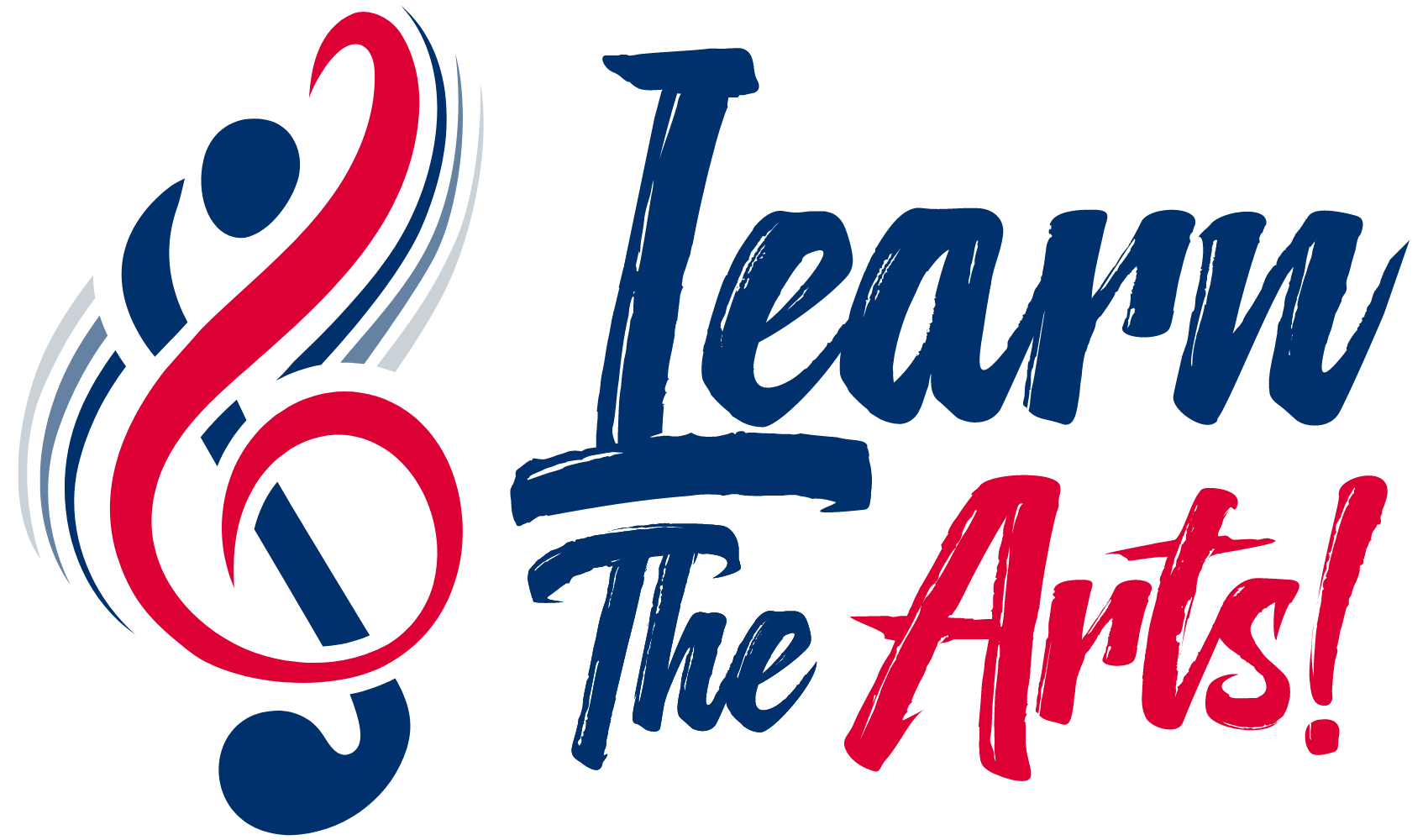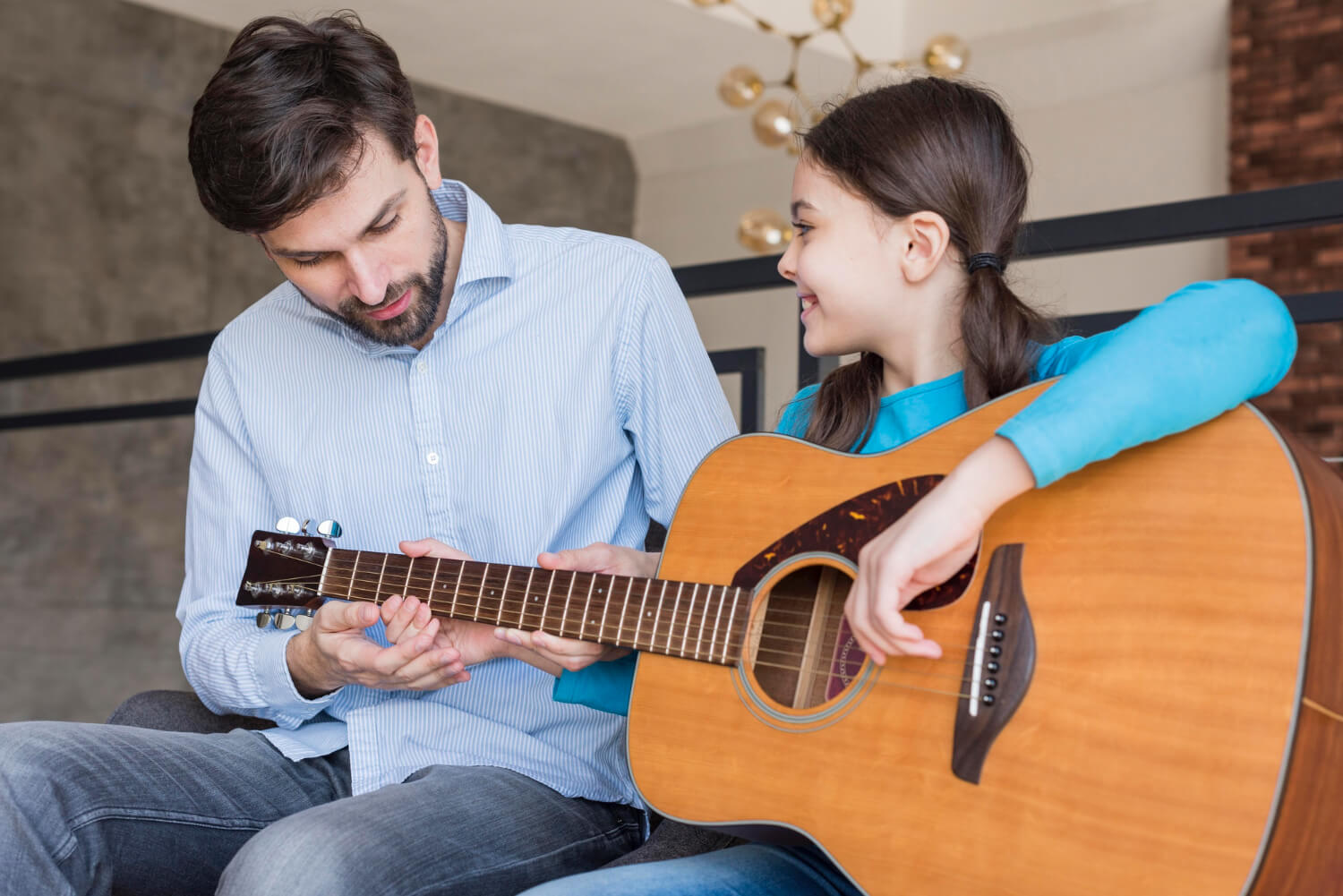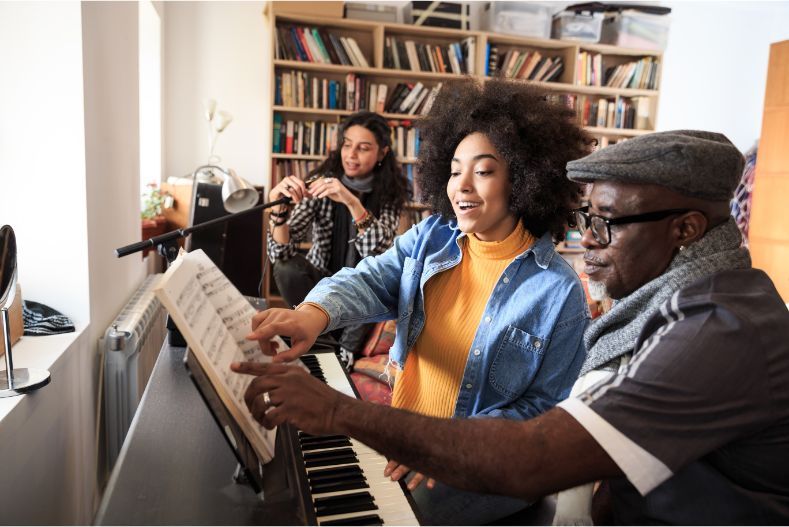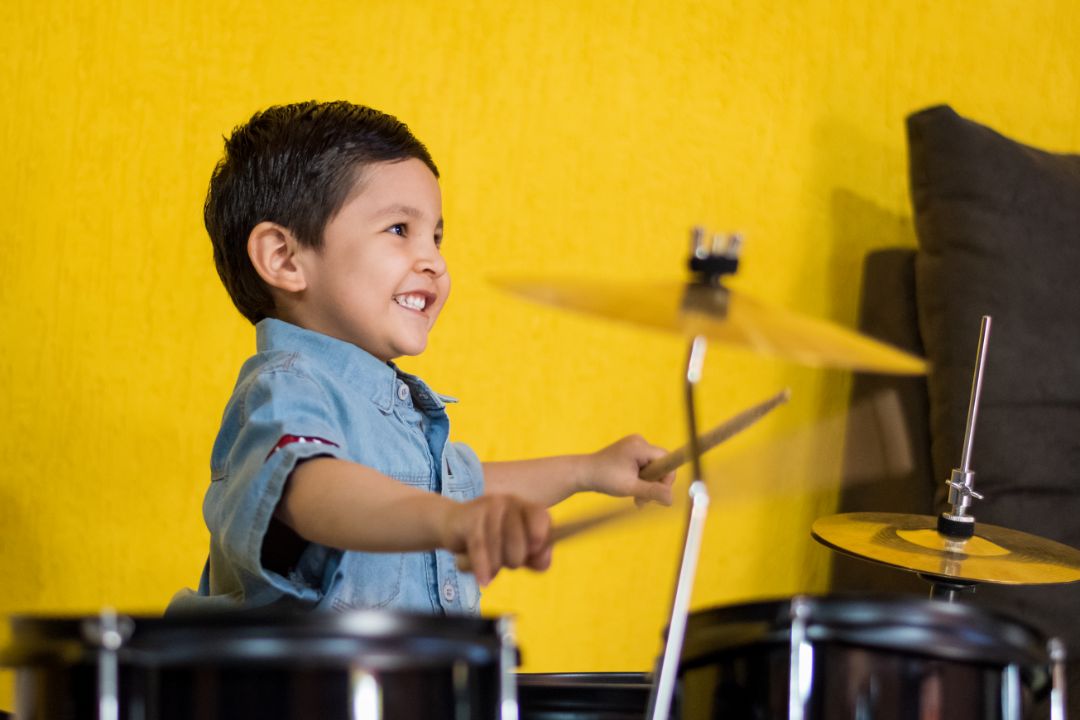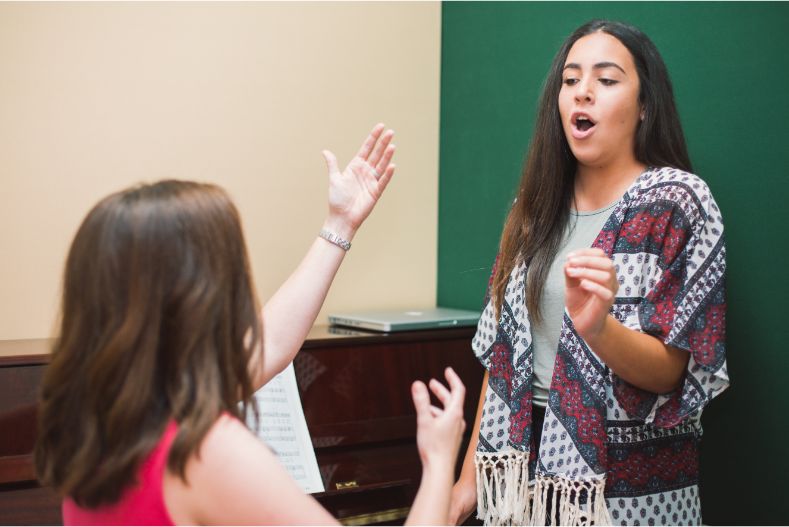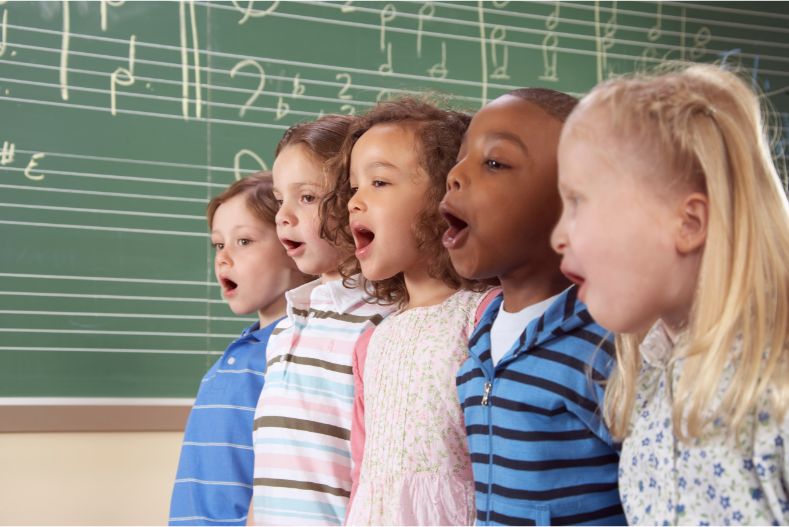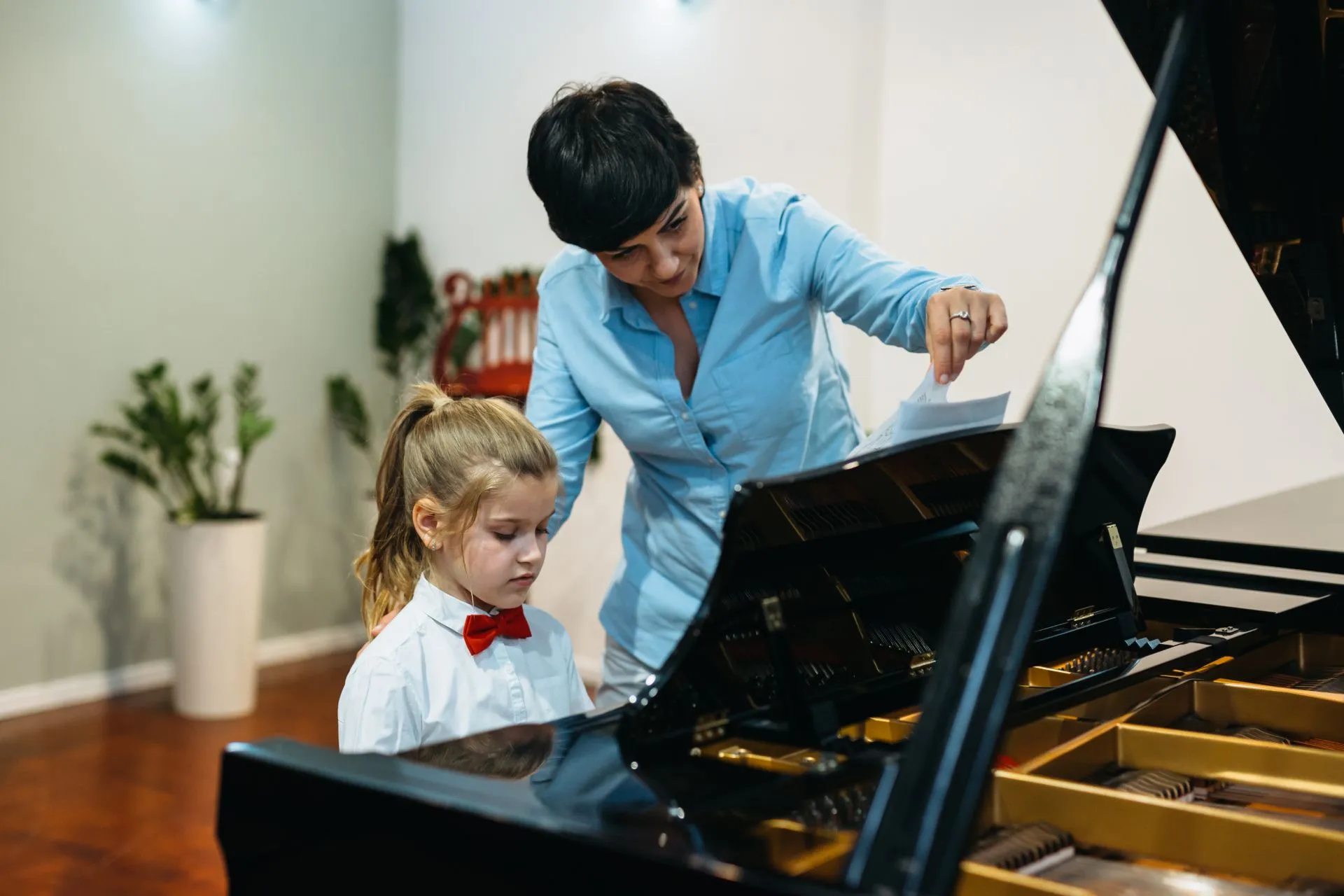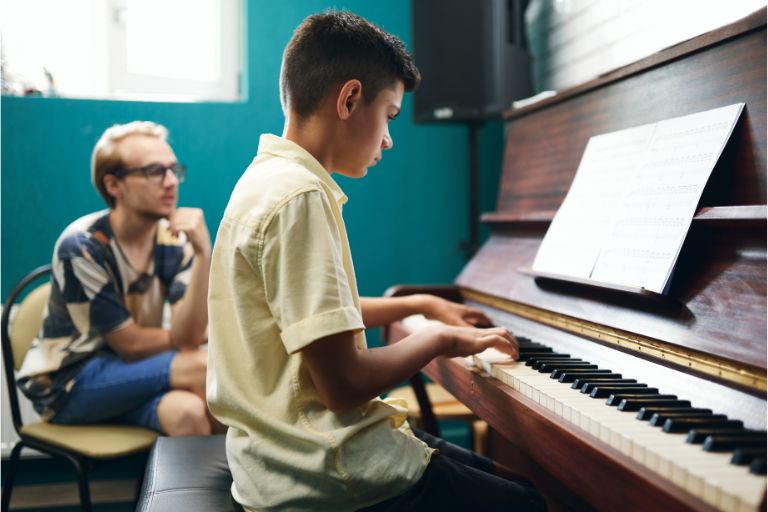Playing the piano is more than just a hobby; it’s a pathway into a brighter future. It’s said that “music gives a soul to the universe, wings to the mind, flight to the imagination and life to everything.” Learning to play the piano enhances a range of skills, setting a strong foundation for future success.
A musical education in piano, much like hip hop dance classes or sessions at esteemed dance schools, can transform an individual. “Music is the shorthand of emotion,” indeed. These lessons go beyond mastering notes and scales, nurturing holistic development in young minds.
In this article, we’ll explore seven incredible ways music and arts piano lessons prepare students for their future. From cognitive benefits to building communication, each section delves into how these lessons shape a well-rounded individual.
Introduction
In today’s fast-changing world, preparing children for the future extends beyond traditional education. Holistic education, which nourishes the mind, body, and spirit, is becoming increasingly important. Music and arts, with a particular emphasis on piano lessons, play a vital role here.
“Piano lessons teach that discipline is the bridge between goals and accomplishments.” A common belief is that these lessons are purely creative pursuits, but they offer much more. They cultivate diverse skills that last a lifetime, enhancing cognitive ability, motor skills, and even academic performance.
“Music education is an unparalleled tool for developing skills that go far beyond the instrument.” Through music and arts, children learn to navigate challenges using creativity and resilience. These lessons offer a pathway to improved brain function and cognitive development, shaping well-rounded individuals.
This blog will explore seven key skills developed through music and arts piano lessons. “The true beauty of music training is not just in the notes, but in the future skills it nurtures.” Whether it’s hip hop dance classes or finding the right dance schools, artistic pursuits can pave the way for a brighter future.
1. Enhances Cognitive Development
Learning piano is a fantastic way to boost your brain power! Did you know that playing piano engages both the left and right hemispheres of the brain? This dual engagement leads to improved memory, problem-solving skills, and enhanced cognitive function. “Playing music is like doing a brain workout,” as researchers put it, making musical training a great choice for cognitive development.
Research has shown that music training can lead to improved IQ and better academic performance. “Music education goes beyond just learning to play an instrument,” say experts, highlighting its extensive benefits. Longitudinal studies have found that children who partake in music lessons often show increased blood flow to the brain, strengthening neural pathways and leading to positive effects on their cognitive abilities over time.
Moreover, these music lessons can help with auditory discrimination, improving the way you understand and process sound. “Music is an all-rounder,” educators agree, because it simultaneously nurtures language skills and cognitive ability. In essence, music training like piano lessons not only creates wonderful sounds but also builds a smarter, sharper mind!
2. Fosters Creativity and Innovation
Learning music and engaging in arts lessons is a fantastic way to boost creativity and encourages one to think outside the box. This exposure to creative fields allows individuals to experiment with new ideas, fostering innovation that transcends boundaries.
Music and arts lessons focus on constructing something unique, whether it’s composing a piece of music or painting a canvas. Such creative challenges promote lateral thinking and offer a fresh perspective on problem-solving.
Famous innovators like David Bowie and Lady Gaga tapped into their musical genius and artistic flair to redefine the music industry. In the realm of art, Pablo Picasso and his unique style of Cubism challenged traditional perspectives and opened new artistic avenues.
Moreover, studies have shown that engaging in music education improves cognitive performance, enhancing skills such as hand-eye coordination and functional brain connectivity. “Music training not only builds musical skill,” noted one study, “but it supports overall brain power.”
Incorporating music and art into education does wonders for cognitive and creative development, making it an invaluable tool for nurturing future innovators. As a quote goes, “Creativity is intelligence having fun.”
3. Builds Discipline and Time Management
Mastering the piano isn’t just about hitting the right keys; it’s about consistent practice that requires discipline and superb time management skills. Regular piano lessons demand students to dedicate time every day to practice. This routine helps them develop a sense of responsibility and a knack for organizing their schedules efficiently. “Practice makes perfect,” as they say, and this mantra rings true not only in music lessons but in life as well.
These skills are invaluable in future career paths where persistence and the ability to manage time are paramount. Whether pursuing hip hop dance classes, excelling in academic performance, or climbing the corporate ladder, being disciplined and managing one’s time effectively are vital traits. “In every job that must be done, there is an element of fun,” and piano lessons teach students to find joy in this disciplined journey.
By working through challenging pieces of music and balancing it with other activities, students learn that success isn’t about speed but consistency and effort. As one wise teacher put it, “The key to success is not merely in talent but in the dedication of time and effort.” Such lessons lay a solid foundation for future accomplishments.
4. Strengthens Emotional Intelligence
Music and arts piano lessons are a wonderful way for children to express their emotions in a healthy and constructive manner. Playing a piece of music allows them to convey feelings like joy, sadness, or excitement through melodies and harmonies. “Music is the shorthand of emotion,” as the famous writer Leo Tolstoy once said. This process helps children improve their emotional regulation, which is crucial for understanding and managing their own emotions.
Engaging in music lessons boosts empathy by allowing children to explore different perspectives and emotions conveyed through music. “Where words fail, music speaks,” said Hans Christian Andersen, capturing the power of this medium to foster understanding and connection between people.
In the future, these skills become indispensable in the professional world. Emotional intelligence is highly valued in environments where leadership and teamwork are essential. The ability to empathize and collaborate effectively with colleagues enhances one’s capacity to work well in teams and lead with compassion. As Daniel Goleman noted, “Emotional intelligence is the key to both personal and professional success.” Through piano lessons, children can develop the emotional skills that set them up for fulfilling careers and harmonious relationships.
5. Develops Communication Skills
Playing the piano is more than just pressing keys; it is a powerful tool for communication. Through music, students learn to convey emotions and stories, transcending language barriers. As they perform and collaborate in group lessons, they enhance their communication skills, learning to express ideas clearly and listen to others’ perspectives.
“Music speaks what cannot be expressed,” and students realize this as they engage in musical training. Effective communication during these lessons is crucial, laying a strong foundation for future careers where clear and confident communication is prized.
Participating in piano lessons requires students to interpret a piece of music and express their interpretation through performance. This process mirrors how professionals need to communicate their thoughts and ideas effectively in their workplaces.
Moreover, collaborative performances demand teamwork and listening skills, essential components of effective communication. These experiences help students develop the confidence to articulate thoughts and emotions confidently.
As students hone their ability to communicate through music and performance, they cultivate important life skills that are valuable beyond the piano bench. “Music can change the world because it can change people,” and these changes start with effective communication.
6. Encourages Teamwork and Collaboration
Music and arts piano lessons often include group activities like duets, ensembles, and recitals. In these settings, children learn the importance of teamwork and cooperation. As one wise pianist said, “Together, we create harmony that one alone cannot achieve.”
The lessons of collaboration learned in music class are invaluable. Children discover how to share ideas, give and receive feedback, and work towards a common goal. This is beautifully reflected in a quote by a renowned music teacher: “Music is the language of strong partnerships.”
The teamwork skills acquired through music lessons aren’t just confined to the arts; they extend into virtually every career and field imaginable. Whether your child pursues a path in business, engineering, or even hip hop dance classes, the ability to work well with others is key. It’s like how we say, “Just as musicians must tune their instruments to play together, we must tune our skills to work with others.”
Dance schools similarly emphasize the importance of teamwork, further enhancing a young learner’s skill set. Thus, these collaborative experiences in music education form a solid foundation for any future endeavor.
7. Boosts Confidence and Presentation Skills
Performing music, especially piano, in front of an audience is a powerful way to build confidence. Whether it’s a small family gathering or a large recital, the act of playing a piece of music publicly helps children overcome stage fright and anxiety. “Music gives a soul to the universe, wings to the mind, flight to the imagination, and life to everything,” says Plato.
This newfound confidence is not just limited to music; it translates into essential life skills like public speaking and presentations. “Courage is not the absence of fear, but the triumph over it,” highlights Nelson Mandela. By frequently performing, children learn to manage their nerves, articulate their thoughts, and present themselves effectively.
These skills are crucial in today’s competitive world, where presentation and self-assurance play significant roles in career success. Whether it’s acing an interview, leading a meeting, or presenting a project, children who have undergone music training often stand out. As Maya Angelou wisely put it, “Success is liking yourself, liking what you do, and liking how you do it.” Music and arts lessons like piano truly prepare children for a bright future.
Benefits of Piano Lessons:
Learning to play the piano offers far more than just musical ability. Piano lessons can significantly improve motor skills by enhancing hand coordination and dexterity. They also support language development and improve reading skills, especially in children, by strengthening brain areas responsible for communication and comprehension. Beyond cognitive benefits, playing the piano positively influences heart rate and blood pressure, promoting overall cardiovascular health. Additionally, regular engagement with music helps slow age-related cognitive decline, making piano lessons a valuable activity for maintaining mental sharpness throughout life.
Piano lessons offer a wide range of benefits that encompass both cognitive and physical aspects, making them a valuable endeavor for individuals of all ages. Here are some of the key benefits, incorporating the specified keywords:
- Language Development: Engaging in piano lessons can significantly enhance language development. Learning to read music translates into better understanding of language structure, as both activities involve decoding symbols and patterns, which can enhance vocabulary and comprehension skills.
- Heart Rate: Playing the piano can positively impact your heart rate. The act of playing music often involves controlling breathing and maintaining rhythmic consistency, which can lead to decreased stress levels and a more stable heart rate during practice sessions.
- Reading Skills: Piano lessons have been shown to improve reading skills, especially in children. Learning to interpret musical notation relies on similar cognitive processes as reading written text, thereby strengthening overall reading abilities.
- Musical Ability: Of course, one of the primary benefits of piano lessons is the improvement of musical ability. Whether a beginner or an advanced student, regular practice enhances technique, understanding of musical theory, and emotional expression through music.
- Blood Pressure: Regularly playing the piano can also help in regulating blood pressure. The relaxation and focus required during piano practice can lower stress and anxiety, which in turn can contribute to healthier blood pressure levels.
- Age-Related Decline: For older adults, piano lessons can be a powerful tool in combating age-related cognitive decline. The mental stimulation and hand-eye coordination required to play the piano can help maintain cognitive functions and delay the onset of conditions such as dementia.
Overall, piano lessons are not only about learning to play an instrument but also provide a comprehensive workout for the brain and body, contributing positively to various aspects of health and well-being.
Conclusion:
In conclusion, enrolling your child in music and arts piano lessons provides more than just the ability to play a piece of music. These lessons foster critical skills such as cognitive development, motor skills, and language skills. As they improve hand-eye coordination and auditory discrimination, children also boost their academic performance and cognitive abilities. As renowned musician Ludwig van Beethoven once said, “Music can change the world,” highlighting its vast influence on personal growth.
At Learn The Arts in Summerlin, Gilbert, and Orange County, our dedicated programs aim to unlock your child’s potential. We understand that musical training is not just about learning notes; it equips children with life-long benefits that propel their career readiness. By nurturing musical skills, we help enhance cognitive functions and important future-ready attributes. As composer Leonard Bernstein noted, “The best way to know a thing is in the context of another discipline,” affirming our integrated learning approach.
So why wait? Music education opens doors to endless possibilities. Give your child the chance to shine through our personalized piano lessons and watch them build a brighter future. “Music gives soul to the universe,” and at Learn The Arts, we aim to provide the keys to that universe.
